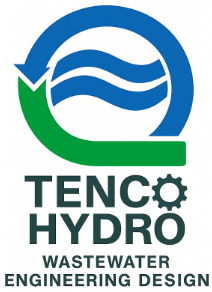Wastewater Treatment, Perfected
Temperature Monitoring for DAF Optimization
Influent Temperature - Optimized Chemical Dosing & Flotation
Ensures proper coagulation, flocculation, and flotation performance.
✅ Enhances Coagulation & Flocculation – Warmer temperatures improve chemical reaction rates, while colder temperatures may require adjusted dosing.
✅ Prevents Underperformance in Winter Conditions – Cold influent water increases viscosity, affecting bubble attachment and separation.
✅ Improves Air Dissolution Efficiency – Helps maintain consistent bubble formation by adjusting saturation conditions based on water temperature.
Recycled Air-Saturated Water Temperature - Maximizing Air Dissolution
Directly impacts the air saturation process in the recycle loop.
✅ Optimized Bubble Formation – Warmer water holds less dissolved air, requiring adjustments to air injection pressure.
✅ Prevents System Inefficiencies – Monitors temperature to ensure consistent flotation performance, preventing excessive bubble loss.
✅ Energy Efficiency – Helps maintain an optimal air-to-solids ratio (A/S ratio) by adjusting aeration settings dynamically.
Holding Tank/Scum Concentrator Temperature - Preventing FOG Solidification
Critical for handling fats, oils, and grease (FOG) and maintaining pump efficiency.
✅ Prevents Oil & Grease Solidification – Maintains temperatures above FOG solidification points, preventing clogging and buildup.
✅ Improves Sludge Pumping Efficiency – Warmer sludge reduces viscosity, allowing for easier transport and dewatering.
✅ Enhances Holding Tank Performance – Helps maintain fluid consistency, reducing pump strain and maintenance issues.
Effluent Temperature - Ensuring Regulatory Compliance
Prevents violations of discharge temperature limits.
✅ Maintains Compliance with Environmental Regulations – Many permits restrict effluent temperature to protect receiving water ecosystems.
✅ Reduces Thermal Shock to Aquatic Life – Prevents excessively warm discharges that could disrupt downstream biological processes.
✅ Optimizes Post-Treatment Efficiency – Ensures proper function of biological or chemical post-treatment systems.
DAF Tank Internal Temperature - Essential for Heated Tanks
Critical when using heating systems such as steam coils or immersion heaters.
✅ Prevents Freezing in Cold Environments – Heated tanks maintain optimal operating conditions year-round.
✅ Optimizes Air Saturation & Separation Efficiency – Warmer water supports better flotation performance in certain applications.
✅ Prevents Energy Waste – Helps balance heating requirements with process needs, reducing unnecessary power consumption.
